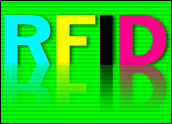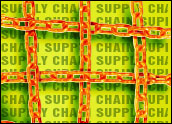
When Wal-Mart started talking about using RFID technology to get a better handle on the demand signal in its supply chains, one frightening image embedded itself in consumers’ collective imaginations: a manufacturer, retailer or both tracking the use and disposal of an individual’s razor blade, toothbrush or can of deodorant.
In point of fact, RFID technology was not at that time developed enough to track single item use. Now, however, the technology has reached the point where it is possible to do so, and consumer fears about privacy violations remain unchanged.
A year ago, IBM scientist Paul Moskowitz delivered a paper at an industry event about a device he invented that could address these concerns. Called “Clipped Tag” technology, it involves an RFID tag small and flexible enough to allow consumers to tear off most of its antenna, thus reducing its read range to just a few inches.
This way, Moskowitz explained to CRM Buyer, consumers still can benefit from having the device embedded in the product, without fear of the manufacturer or retailer tracking how it is used.
Practical Uses
Moskowitz cites a number of reasons why a consumer would even want a personal hygiene product or can of vegetables — or any consumer item for that matter — to come equipped with RFID technology. “There are four good reasons actually, and while applications have not yet been developed around them, I do believe they will be at some point,” he said.
These reasons include recalls, product authentication, returns and recycling. With the possible exception of returns, developing applications around these processes would be of substantial benefit to consumers, Moskowitz added.
Consider a hypothetical recall of a batch of food products that had been discovered to be tainted with E. coli. A consumer could take the suspect product — outfitted with the Clipped Tag — wave it over a cell phone embedded with an RFID reader and find out whether or not it was part of the tainted group.
Product authentication is another example, Moskowitz said. “I don’t think consumers are aware of how much counterfeit and dangerous drugs enter our supply chain each year. RFID technology could save lives this way.” An RFID-enabled recycling application could inform a consumer about the materials included in a product along with appropriate ways to dispose of it.
One Step Closer
Granted, these applications are still in the conceptual stage. Indeed, it was only recently that the industry rallied around one standard for consumer goods RFID tagging.
However, IBM said it is nudging the industry closer to the day when consumers can wave bagged produce over their cell phones to find out if they can be safely consumed.
A year after Moskowitz delivered his paper and distributed handmade prototypes of his invention, IBM has announced it will license his Clipped Tag technology to Marnlen RFiD, which manufactures custom and standard RFID labels at its facilities in Markham, Ontario. The firm said it will begin production and offer availability of Clipped Tag products immediately.
“IBM’s Clipped Tag concept is an elegant way to promote the benefits of RFID while protectingprivacy,” said Andris Lauris, vice president business development, Marnlen Management. “We’re excited to be the first company in our industry to make the concept a reality.”












































